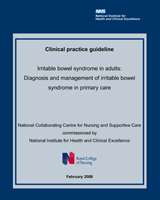| Global improvement of IBS symptoms (no. patients) | 1 trial; 172 patients; from RCT; (parallel design); | RR=0.9 (95%CI 0.7, 1.15) | | Not significant | Good | Indirect setting-minor, secondary care OPD | Precise | consistent | --- | 12 weeks. 16% discontinued psychotherapy and 34% SSRI, but ITT. Refractory IBS. 50% depression. Secondary care. | Moderate |
| Global improvement of IBS symptoms (no. patients) | 1 trial; 172 patients; from RCT; (parallel design); | RR=1.09 (95%CI 0.84, 1.41) | | Not significant; may be confounded. | Poor probably confounded | Indirect setting-minor, secondary care OPD | Precise | consistent | --- | 12 months. May be confounded by different use of SSRI in follow up. 16% discontinued psychotherapy and 34% SSRI, but ITT. Refractory IBS. 50% depression. Secondary care. | very low |
| pain score | 1 trial; 172 patients; from RCT; (parallel design); | MD=4.5 (95%CI −4.95, 13.95) | | Not significant | poor loss to follow up | Indirect setting-minor, secondary care OPD | Precise | consistent | --- | 12 weeks. 16% discontinued psychotherapy and 34% SSRI, but ITT. Refractory IBS. 50% depression. Secondary care. 26% missing data. | Low |
| Quality of life | 1 trial; 172 patients; from RCT; (parallel design); | MD=−0.2 (95%CI −3.35, 2.95) ) | | Not significant | poor loss to follow up | Indirect setting-minor, secondary care OPD | Precise | consistent | --- | SF36 physical component. 12 weeks. 16% discontinued psychotherapy and 34% SSRI, but ITT. Refractory IBS. 50% depression. Secondary care. 32% missing data. | low |
| Quality of life | 1 trial; 172 patients; from RCT; (parallel design); | MD=1.7 (95%CI −3.05, 6.45) ) | | Not significant | poor loss to follow up | Indirect setting-minor, secondary care OPD | Precise | consistent | --- | SF36 mental component. 12 weeks. 16% discontinued psychotherapy and 34% SSRI, but ITT. Refractory IBS. 50% depression. Secondary care. 32% missing data. | low |
| Number requiring other medication | 1 trial; 172 patients; from RCT; (parallel design); | RR=0.45 (95%CI 0.27, 0.75) | | Statistically significant, favours psychotherapy. NNH 5, antidepressant group rate 42% | Good | Indirect setting-minor, secondary care OPD | Fairly wide CI | ---- | --- | Number requiring prescriptions for antidepressants over 12m. Refractory IBS. 50% depression. | Low |
| Number discontinuing treatment | 1 trial; 172 patients; from RCT; (parallel design); | RR=0.49 (95%CI 0.28, 0.86) | | Statistically significant, favours psychotherapy. NNH 6, antidepressant group rate 34% | Good | Indirect setting-minor, secondary care OPD | Fairly wide CI | consistent | --- | Refractory IBS, secondary care, 50% depression | Low |
